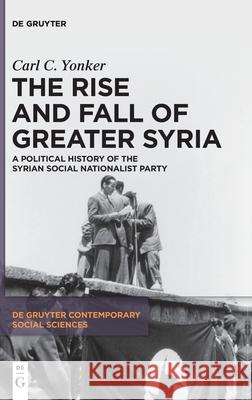The Rise and Fall of Greater Syria: A Political History of the Syrian Social Nationalist Party » książka
topmenu
The Rise and Fall of Greater Syria: A Political History of the Syrian Social Nationalist Party
ISBN-13: 9783110728477 / Angielski / Twarda / 2021 / 302 str.
The Rise and Fall of Greater Syria: A Political History of the Syrian Social Nationalist Party
ISBN-13: 9783110728477 / Angielski / Twarda / 2021 / 302 str.
cena 425,72
(netto: 405,45 VAT: 5%)
Najniższa cena z 30 dni: 388,51
(netto: 405,45 VAT: 5%)
Najniższa cena z 30 dni: 388,51
Termin realizacji zamówienia:
ok. 30 dni roboczych
Bez gwarancji dostawy przed świętami
ok. 30 dni roboczych
Bez gwarancji dostawy przed świętami
Darmowa dostawa!
Kategorie BISAC:
Wydawca:
de Gruyter
Seria wydawnicza:
Język:
Angielski
ISBN-13:
9783110728477
Rok wydania:
2021
Numer serii:
001187701
Ilość stron:
302
Waga:
0.60 kg
Wymiary:
23.39 x 15.6 x 1.75
Oprawa:
Twarda
Wolumenów:
01
Dodatkowe informacje:
Wydanie ilustrowane











